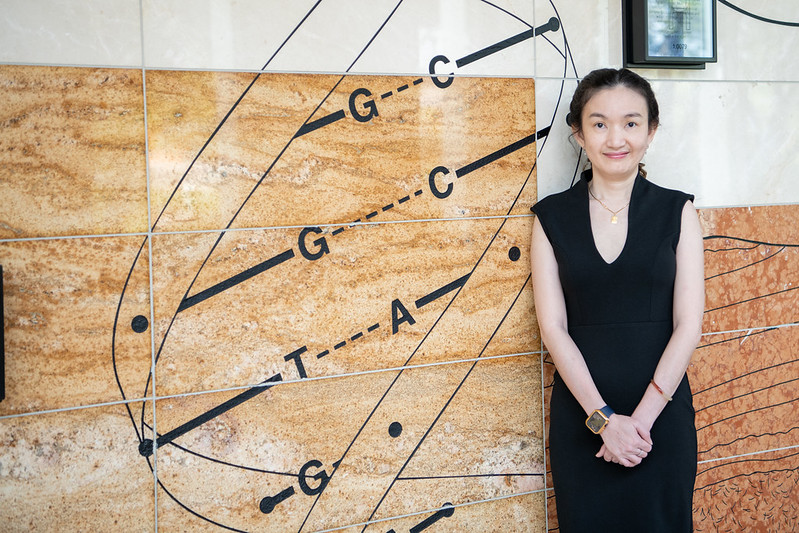Ten years ago, Mai Huynh arrived at Dallas College to take English for Speakers of Other Languages (ESOL). This May, she completed her educational journey with a doctorate and international acclaim for her pioneering scientific research. With almost all of that journey paid for by scholarships and other grants, Huynh now wants to give back by teaching the next generation of scientists.
Her latest paper, published in February, won an Editor’s Choice accolade in the journal Nanomaterials. That designation is given to research that is likely to be of strong interest to the scientific community.
Huynh’s research looks at the properties of carbon nanotubes, tiny, cylinder-shaped structures that can be used as ultrastrong scaffolding for muscle generation, drug delivery and other medical applications. (Carbon nanotubes are also used in some high-tech, lightweight bicycles.)
But medical researchers are concerned that carbon nanotubes could also have toxic health effects. Measured in nanometers, nanotubes are so tiny that they can enter human cells, creating both planned and unplanned changes. A single human hair is about as wide as 50,000 carbon nanotubes.
Huynh’s latest paper specifically examined the interaction between nanotubes and macrophages, cells in the human body that defend against intruders like bacteria. Understanding those interactions could lead researchers to biomedical applications, including ways to avoid toxic effects.
“It’s a really big deal to me,” Huynh said of the publication and Editor’s Choice award. “It’s not only my hard work paying off; also, my work can be recognized by like-minded scientists and maybe play a background role in further application of the carbon nanotube.”
Huynh began her journey into science at Dallas College’s Richland Campus in 2011, as an ESOL student. A lifelong lover of science, Huynh had just arrived in the United States from her native Vietnam. When she completed ESOL courses and began studying college science at Richland, she got a big boost from the STEM Scholars program.
“At Richland, I got the STEM Scholarship for 2 ½ years,” Huynh said. “Being a STEM Scholar is a big, important part of my Richland College career because it helped a lot. The STEM Scholarship almost covers all of the tuition and fees.”
She also joined the STEM Institute, another resource she credits with aiding her career.
“They helped a lot,” Huynh recalled. “Every year, they have a STEM Summit. They have career path information for us, and they have information about how to transfer to a university. It’s really helpful.”
Equipped with that knowledge, Huynh transferred to the University of Texas at Dallas and earned a Bachelor of Science degree in chemistry, then stayed on at UT Dallas to earn her doctorate.
Huynh is currently looking for work as a professor or a lab manager who regularly interacts with students. Her goal is to repay the kindness instructors have given to her over the years.
“Professors here supported me inside and outside of class,” she explained. “They mentored me. The professors at Richland are really friendly, really helpful. They try to help students achieve success. Now I want to pay it forward. I love to teach. I love to help students.”
